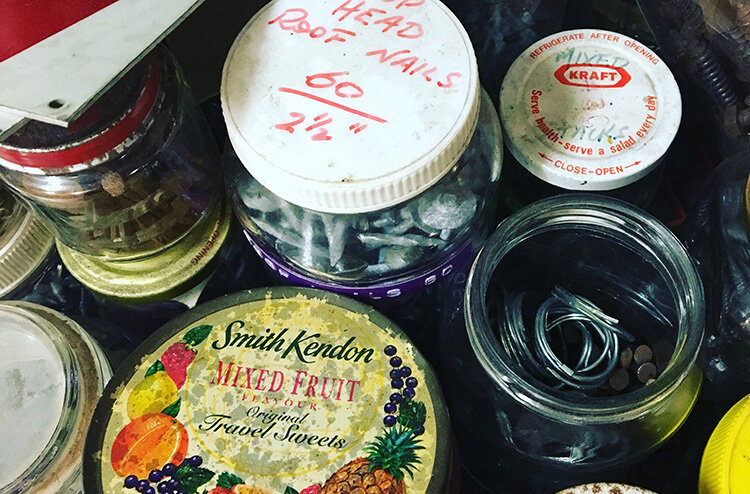Make second hand normal with Guido Verbist of The Bower

When I was growing up, we never really bought anything much second-hand (except a car). We would happily donate our unwanted or unneeded items to the charity shop every six months, happy that they were out of our hands and happy that maybe someone else would use them, but buying second hand wasn’t usually on our radar.
Not until I became interested in vintage clothes in my early 20s did I ever really consider shopping second hand, and even then it was an exception rather than the rule. I still somehow didn’t consider second hand shopping a viable option for most things, probably because it was less convenient than buying what I needed at a chain store or big department store, and in that, I know I wasn’t alone. In fact, I still think buying second hand is relatively uncommon. There’s still a bit of a stigma attached to buying pre-loved, and the convenience factor is still very much in play, particularly when you look at the ample opportunities for online shopping and almost immediate gratification.
Today’s guest, Guido Verbist from The Bower Reuse and Repair Centre is on a mission to turn this thinking on its head and make buying second hand normal.
If you watched War on Waste, the recent series on the ABC, you may have met Guido already. He’s the Co-op Manager of The Bower, and he’s been doing a huge amount of work over the past few years to reframe the way we think about second hand stuff, as well as empowering each of us to take control of repairing the things we do own.
I sat down to chat with Guido in the workshop room of The Bower’s new Reuse and Repair Centre in Parramatta, and we got to talking about convenience, the stigma of buying pre-owned things, and the lost art of repair.
The Bower aims to help minimise the amount of stuff going to landfill (and to date has stopped more than 1.3 million kilograms of stuff from ending up in the ground) and they do this by:
-
- reselling unwanted goods to people who need them
-
- fixing items and reselling them to people who need them
-
- testing and tagging unwanted electrical items and reselling to people who need them
-
- teaching people how to repair their own belongings at regular repair cafes and various workshops
-
- working with local councils and encouraging residents to use their services
- working with refugee and domestic violence services to help those in need establish a new home
This is an organisation making a huge difference across Sydney, and Guido talks openly and honestly about the benefits and challenges of being at the forefront of the reuse and repair movement in Australia, as well as his advice for people who want to set up similar services in their local community.
I personally love the idea of repair, but lack most of the skills needed to fix things. At The Bower, they run over 200 workshops every year teaching regular people the skills involved in repairing their own belongings. Under their guidance, you (and I) can learn to fix the table, reupholster the chair, rewire the DVD player, mend the bike or darn the clothes. I can’t tell you how excited this makes me. It feels kind of counter cultural and rebellious and I like it a lot.
Guido and I also talk about the issue of planned obsolescence and how to tell if an item you’re buying can be repaired, or if it’s been designed to be binned once the newer model is released. Attached to this idea is the notion of the circular economy (something I touched on in my recent conversation with Tim Silverwood) and why we need both the grass roots movements, like reuse and repair, AND the big corporations embracing circular design, in order to see large scale, global growth.
Guido is passionate and knowledgable and I walked away from our conversation feeling optimistic about the future. The second hand future, that is!
——
Head over to iTunes to subscribe to the show and play the episode.
Or you can listen to the show directly, simply by hitting the Play button above. Enjoy!——
Things to Check Out After Today’s Episode:
- The Bower Reuse and Repair Centre
- Check out The Bower's upcoming events
- Tim Silverwood on circularity, connection and saying no to plastic
- War on Waste (youtube links for international listeners) Episode 1 | Episode 2 | Episode 3
- War of Waste for Australian listeners can be found here on ABC iView
- Connect with The Bower: Facebook | Instagram

